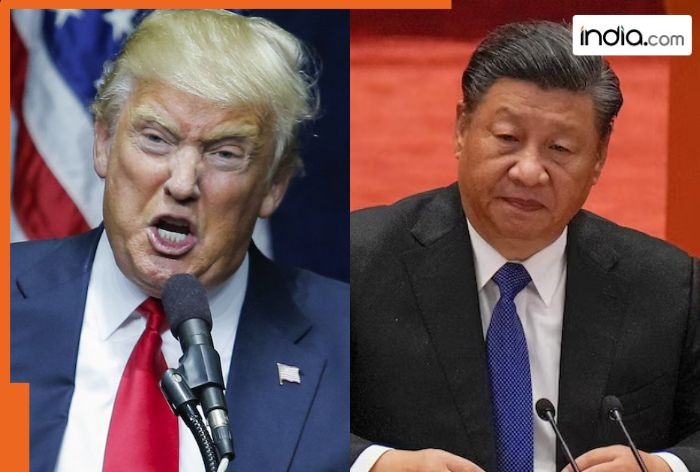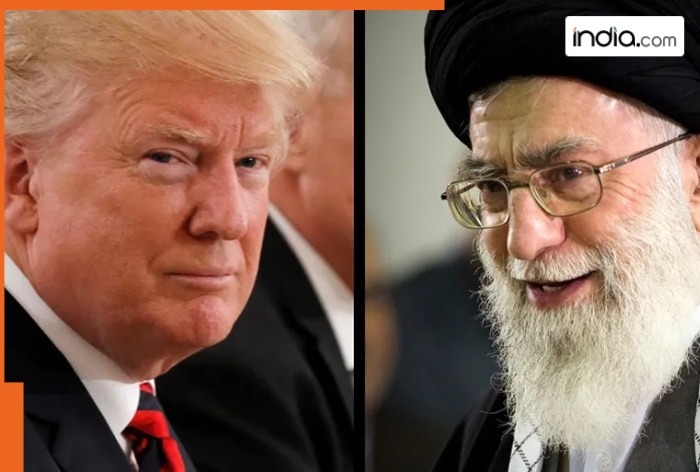Big blow to Donald Trump! China strikes back after US President’s 100 percent tariff move, increases fees on…
China on Sunday defended its latest export control measures on rare earths and related items as a legitimate action to safeguard global peace.

Tensions between China and the United States have sharply escalated, marking a new low in their already strained relationship. Recently, US President Doland Trump announced that the United States will impose a 100 per cent tariff on Chinese goods “over and above any tariff that they are currently paying,” effective November 1, 2025. Furthermore, he also stated that export controls will be placed on all critical software starting the same day. This comes in response to China’s ramping up of restrictions on rare earth exports, expanding its control list, and extending curbs to cover production technologies and overseas applications, including those in the military and semiconductor sectors.
Who will be affected by China’s new port fees?
In what can be considered a calculated, albeit retaliatory measure, China has now taken an additional action against the United States. China has officially begun charging a special port fee on ships that are US-owned, operated, built, or flagged, effective Tuesday.
When will these new fees come into effect?
According to China’s state broadcaster CCTV, this special fee will be applied to American vessels carrying cargo to Chinese ports. Ships built in China will be exempt from the special fees. This fee exemption will also apply to empty vessels arriving for repairs, as well as certain special categories of ships.
What triggered the US to impose a 100% tariff on Chinese goods?
Meanwhile, China on Sunday defended its latest export control measures on rare earths and related items as a legitimate action to safeguard global peace, warning the US of “resolute measures” if President Doland Trump proceeds with his threat to impose 100 per cent tariffs on Chinese exports.
According to the Reuters report, Analysts stated that, although comparatively few U.S.-constructed or U.S.-flagged ships participate in international trade, China’s rules could capture many more vessels than might otherwise be apparent. This is because the new tariffs will also apply to companies in which U.S.-based investment funds own or control 25% or more of the shares or the board of directors, thereby broadly expanding the scope of the rule well beyond vessels directly owned by Americans.
“This casts a wide net and could affect many public shipping companies with a listing on U.S. stock exchanges,” Erik Broekhuizen, a marine research and consulting manager at ship brokering firm Poten & Partners, was quoted as saying by Reuters.
What does the directive say?
The directive states clearly that if a U.S. vessel calls at a Chinese port, it will be charged the “special port fee” only once for its first visit to China. If the same vessel makes several voyages to Chinese ports in the year, the fee will apply only to the first five voyages.
Thereafter, every year on April 17, a new billing cycle will begin, essentially resetting the count, and any vessel that does not comply with the special fee requirement will have its import and export process suspended until the fee is paid.
STORY HIGHLIGHTS
- According to the Chinese transportation ministry, U.S.-linked ships berthing in Chinese ports starting Tuesday.
- The charge will be 400 yuan ($56.13) per net metric ton.
- Every year on April 17, a new billing cycle will begin.
- China on Sunday defended its latest export control measures on rare earths.
According to the Chinese transportation ministry, U.S.-linked ships berthing in Chinese ports starting Tuesday, the charge will be 400 yuan ($56.13) per net metric ton. This will rise to 640 yuan (US$89.81) effective April 17, 2026; and to 880 yuan (US$123.52) from April 17, 2027. For vessels calling at ports in China, from April 17, 2028 the charge will be 1,120 yuan (US$157.16) per net metric ton, as reported by Reuters.
What's Your Reaction?





















































